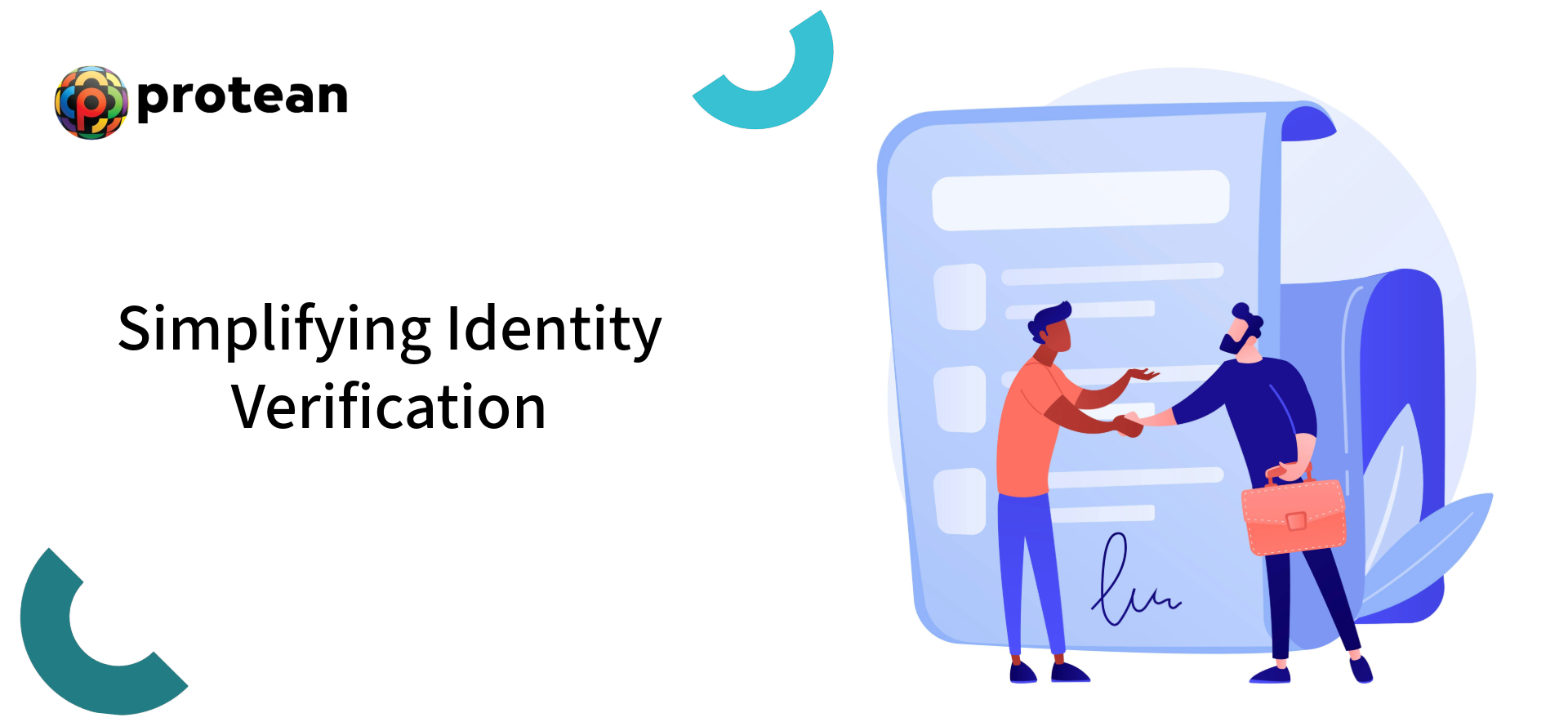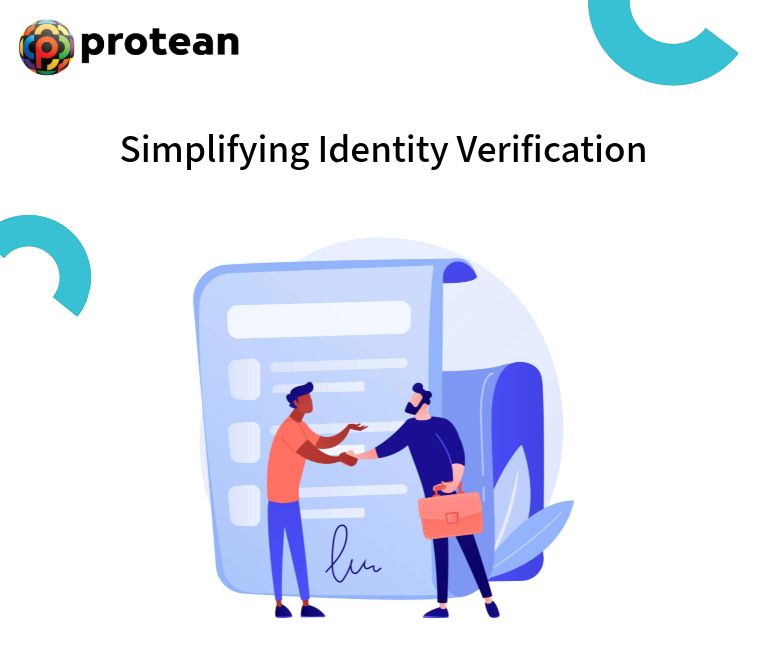What is eKYC in Aadhaar authentication? Before we come to this question, let us look at how traditional identity verification works.
Unlike the online KYC process, the legacy KYC processes in India have long struggled with inefficiencies such as:
- Manual form filling
- Repeated document submissions
- In-person verifications
- Prolonged turnaround times.
Electronic KYC (eKYC), powered by Aadhaar authentication, has emerged as a game-changing solution. Online identity verification with Aadhaar authentication has enabled instant, secure, and paperless identity verification. Backed by regulatory frameworks from UIDAI and MeitY, and supported by technology providers like Protean eGov Technologies Ltd., Aadhaar-based eKYC is widely known as the benchmark for efficient and trustworthy digital identity verification in India.
Here’s more on the eKYC method with Aadhaar authentication.
eKYC with Aadhaar Authentication Meaning & Significance
eKYC is a paperless KYC process.
The traditional KYC depends on physical or scanned copies of identity documents. However, the KYC verification online can leverage Aadhaar. Aadhaar is India’s 12-digit unique identification number linked to biometric and demographic data as the primary means of authentication. This, in the eKYC process, once an individual provides consent and authenticates their identity through Aadhaar, either via biometric verification or a one-time password, key personal details such as name, address, date of birth, and photograph are securely retrieved from the UIDAI database.
How Does eKYC with Aadhaar Authentication Work?
The Aadhaar authentication in eKYC is designed to be user-friendly, secure, and fully compliant with data privacy norms. Let us look at the Aadhaar-based authentication process in detail:
- User Consent and Aadhaar Submission: The eKYC process starts with the user's explicit consent to share their Aadhaar number with a service provider (such as a bank or telecom operator), as mandated by the Aadhaar Act to ensure privacy and transparency.
- Authentication Choice: The user can authenticate their identity using either an OTP sent to their Aadhaar-linked mobile number or biometric data like a fingerprint or iris scan, based on the device and context of use.
- Data Retrieval from UIDAI: Once authentication is successful, UIDAI securely shares the user’s demographic details and photograph in a digitally signed and encrypted XML format, ensuring tamper-proof and forgery-resistant identity verification.
- Integration into Onboarding Process: The retrieved data is seamlessly integrated into the service provider’s system, completing identity verification without the need for physical documents or manual entry, within a minute enabling real-time customer onboarding.
The process is powered by UIDAI’s Aadhaar Authentication API infrastructure and widely implemented through platforms like Protean’s eKYC API stack, which provides scalable, secure, and compliant identity verification solutions for businesses across sectors.
Online vs Offline KYC: A Comparative View

Benefits of eKYC via Aadhaar
The eKYC with Aadhaar authentication framework can offer multifold advantages to both users and service providers:
- Paperless Process: eKYC eliminates the need to carry, scan, or upload identity documents. Aadhaar serves as a single, verified source of truth.
- Real-Time Verification: Using APIs and biometric/OTP-based validation, the entire KYC process can be completed in seconds.
- Enhanced Security: The encrypted XML data received from UIDAI is digitally signed, making it tamper-proof and authenticated at the source.
- Cost-Efficiency: eKYC significantly reduces operational overheads related to physical storage, personnel, and logistics.
- Fraud Prevention: Identity spoofing or forgery is nearly impossible as Aadhaar biometric or OTP authentication is required.
- Widespread Acceptance: Banks, mutual funds (through KRAs), telecom providers, NBFCs, and insurance companies are now mandated or encouraged to adopt eKYC for streamlined customer onboarding.
How Does It Simplify Identity Verification?
The eKYC with Aadhaar authentication system simplifies identity verification in multiple ways:
- Unified Digital Identity: With Aadhaar acting as a single source of verified demographic data, users no longer need to juggle multiple documents like PAN, utility bills, and passports for different services.
- Frictionless User Experience: From opening a bank account to activating a SIM card or investing in mutual funds, Aadhaar-based eKYC enables a fast, seamless, and paperless onboarding experience, widely adopted by fintech and telecom providers offering fully digital customer journeys.
- Scalability: Platforms like Protean eGov’s Aadhaar Authentication Services enable even small institutions to adopt eKYC by integrating with government APIs. This democratizes access and ensures compliance across the ecosystem.
- Reduced Human Errors: Manual KYC processes are prone to errors in data entry and document mismatch. Automated Aadhaar-based eKYC directly pulls verified data, ensuring accuracy and standardisation.
- Remote Access: Especially crucial during the COVID-19 pandemic and in remote geographies, eKYC enables users to access financial and telecom services from the safety and comfort of their homes, using just their Aadhaar and mobile number.
- Regulatory Compliance: The Reserve Bank of India (RBI), SEBI, IRDAI, and TRAI have all issued guidelines promoting eKYC, subject to user consent and UIDAI regulations. SEBI-registered intermediaries now use Aadhaar-based eKYC through KRA platforms for onboarding investors.
Conclusion
eKYC using the Aadhaar authentication API marks a significant milestone in India’s digital public infrastructure. It not only simplifies identity verification but also builds customer trust, mitigates fraud risks, and reduces operational costs.
- For individuals, eKYC can enable quicker access to essential financial and telecom services.
- For businesses, it can enhance efficiency, compliance, and reach.
Embracing Aadhaar-based eKYC is a step towards a smarter, safer, and more inclusive digital economy. Get in touch with us now for a comprehensive eKYC business solution.

